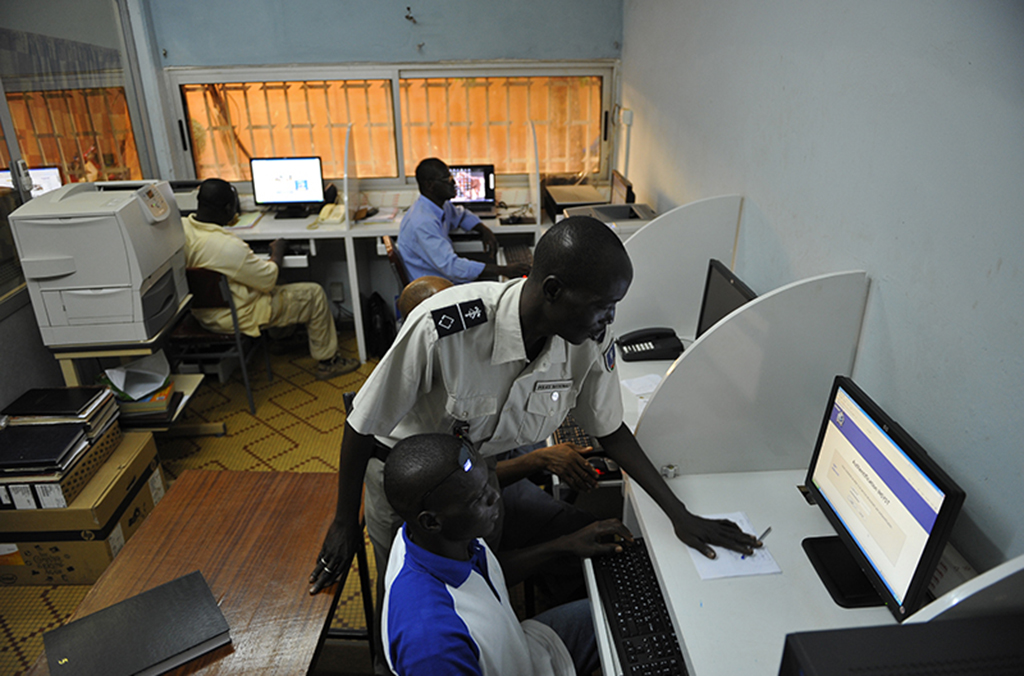In a sweeping move to strengthen cybersecurity and combat financial crimes, the International Criminal Police Organization (Interpol) recently executed a significant operation across Africa, targeting illegal activities such as unauthorized cryptocurrency mining and fraudulent financial schemes. Dubbed Operation Serengeti 2.0, this initiative spanned three months, from June to August 2025, and resulted in over 1,200 arrests. Moreover, it enabled the recovery of nearly $100 million in stolen funds and seized assets. This crackdown underscores the growing need for international collaboration in tackling cybercrime and protecting financial systems.
Operation Serengeti 2.0: A Landmark Cybercrime Crackdown in Africa
Strategic Operation Against Cyber Threats
The operation was a joint effort involving investigators from 18 African nations, supported by the United Kingdom and various private-sector partners. These collaborations led to the dismantling of 11,432 malicious infrastructures connected to around 88,000 online crime victims. High-impact crimes such as ransomware attacks, scams, and business email compromise (BEC) were key targets. In Angola, authorities successfully shut down 25 illegal cryptocurrency mining sites managed by 60 Chinese nationals and took over 45 unauthorized power stations fueling these operations. The seizure of IT equipment and mining machinery totaled over $37 million.
Major Financial Fraud Uncovered
Zambia witnessed the exposure of a large-scale cryptocurrency investment scam affecting 65,000 victims and resulting in $300 million in losses. Law enforcement made 15 arrests, seizing domains, SIM cards, and bank accounts used in the fraudulent scheme, which falsely promised significant returns to investors. Furthermore, a separate operation in Lusaka intercepted a suspected human-trafficking network, confiscating 372 forged passports from seven countries.
In another development, Ivorian police dismantled a cross-border inheritance scam originating from Germany, where unsuspecting victims were coerced into paying fees for fictitious inheritance claims. This scam generated approximately $1.6 million in illegal profits. The prime suspect has been apprehended, with authorities also seizing cash, jewelry, and vehicles.
Global Cooperation and Impact
Interpol’s Secretary General, Valdecy Urquiza, highlighted the critical role of international cooperation in achieving these outcomes. According to Urquiza, each collaborative operation fosters deeper cooperation, enhances information sharing, and boosts investigative capabilities across member countries. This synergy results in more significant and impactful results.
Operation Serengeti 2.0 was part of the African Joint Operation Against Cybercrime, with participating countries including Nigeria, Rwanda, and South Africa. Key private partners involved were TRM Labs, Trend Micro, and Team Cypru.
Current Crypto Market Snapshot
As of the latest updates, the global cryptocurrency market capitalization is approximately $3.95 trillion, reflecting a 3.87% rise within the last day. The daily trading volume has surged to $157.12 billion, indicating increased activity among major tokens. Bitcoin leads the market, priced at $115,811, while Ethereum stands at $4,700, both showing strong performance amid broad market gains.
Frequently Asked Questions
What is the significance of Interpol’s Operation Serengeti 2.0?
Operation Serengeti 2.0 represents a vital international effort to combat cybercrime, particularly in the realm of illegal cryptocurrency activities and financial fraud. The operation’s success demonstrates the power of global cooperation in identifying and dismantling complex criminal networks.
How did Operation Serengeti 2.0 impact illegal cryptocurrency activities?
The operation led to the closure of 25 illegal cryptocurrency mining sites in Angola and the dismantling of malicious infrastructures across Africa, severely hindering illicit cryptocurrency operations and reducing cybercrime opportunities.
Why is global collaboration important in tackling cybercrime?
Cybercrime often transcends borders, making it essential for countries to work together. Global collaboration enhances resource sharing, improves investigative techniques, and leads to more effective responses against complex cyber threats.
This comprehensive guide sheds light on the strategic efforts in cybercrime prevention, offering insights into the operation’s successes and the broader context in which these efforts occur. By understanding these developments, stakeholders can make well-informed decisions to enhance security measures and mitigate risks in the digital realm.

